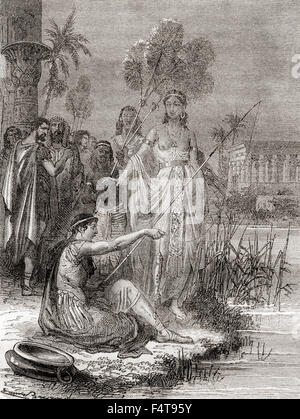

Plutarch’s Parallel Lives therefore has important insights into liberty and responsibility. Plutarch’s goal in his biographies is to present readers with examples of conduct to imitate and to avoid in their own lives. When right and wrong are not obvious in these situations, Plutarch is not reluctant to judge his subjects, but in the end he expects his readers to shoulder the task of evaluating the wisdom of the choices his subjects make. Plutarch concentrates on crucial moments in their lives at which they face difficult decisions.

Therefore, he explores his subjects’ characters and their responses as free and responsible individuals to moral challenges, whether posed by small things or momentous events. Plutarch writes biographies focused on individual character, not the details of history. Plutarch’s biographies were regarded as essential reading for young people because they revealed in dramatic fashion just how much character mattered in moral choices. The public loved Plutarch, too: from the founding of this country until well into the nineteenth century, a translation of Plutarch’s Parallel Lives was the second most likely book to be found in American homes, following only the Bible. Montaigne, Shakespeare, Dryden, Rousseau, and Emerson––all were avid readers of Plutarch. Following the Renaissance’s rediscovery of ancient Greek literature, his Parallel Lives inspired leading authors and thinkers. The concise biographies of famous Greek and Roman men ( Parallel Lives) written by the Greek philosopher and priest Plutarch under the early Roman Empire are true classics in the literature of Western civilization. Liberty, Responsibility, and Character in Plutarch's "Parallel Lives" Plutarch was one of the authors highly regarded by Pierre Goodrich, the founder of Liberty Fund, who included his name on the wall of the Goodrich Semiar Room at Wabash College, Indiana.


 0 kommentar(er)
0 kommentar(er)
